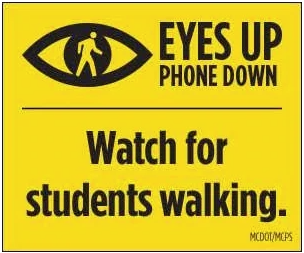Financial Aid and Scholarships
There are many ways to help pay for or reduce the cost of college. Some families will qualify to receive financial aid. Financial aid is funding that can come from federal, state, school, and private sources to help you pay for college or career school. Financial aid is offered in the form of scholarships, grants, loans or work-study.
Many nonprofit and private organizations offer scholarships to help students pay for college or career school. This type of free money, which is sometimes based on academic merit, talent, or a particular area of study, can make a real difference in helping you manage your education expenses.
This page will provide you with information, resources and links for financial aid and scholarships. You should complete the applications to any and all that apply to you and your financial needs.
Jump to a section on this page:
- Federal Financial Aid – FAFSA
- Maryland State Financial Aid – MHEC/MDCAPS for Eligible Students
- Maryland State Financial Aid – MSFAA and aid for Undocumented Residents and Unaccompanied Homeless Youth
- Maryland State-Specific Programs
- Scholarships
- CSS Profile
Federal Financial Aid – FAFSA
What is the FAFSA?
The Free Application for Federal Student Aid (FAFSA) is the form you need to fill out to get any financial aid from the federal government to help pay for college. Each year, over 13 million students who file the FAFSA get more than $120 billion in grants, work-study, and low-interest loans from the U.S. Department of Education. The FAFSA asks for information about you and your family’s finances, including tax returns, so you’ll need your parents’ help to complete it. The FAFSA is free—you don’t need to pay anyone to prepare it for you.
Once you have submitted a complete FAFSA application, you and your families’ financial information will be forwarded to the colleges you listed in your FAFSA as well as Maryland Higher Education Commission to determine state aid eligibility and how much you’ll get. Based on financial eligibility, it will be determined if you qualify for scholarships, grants, loans and/or work-study programs.
Who Should Complete the FAFSA?
Anyone planning on going to college in the next academic year should fill out the FAFSA. Your family doesn’t have to have a low income to qualify for assistance. Even if your family makes $200,000 a year, you could be eligible for aid. You automatically qualify for a low-interest federal loan when you submit a FAFSA. These loans are less expensive to pay back than many private student loans. Many work-study programs require the FAFSA. Some merit-based scholarships require the FAFSA to help them determine scholarship amounts.
How to Fill Out the FAFSA
There are three ways to complete and submit your FAFSA:
- Online at studentaid.gov
- With the myStudentAid app, available on iTunes and Google Play
- By printing and filling out a FAFSA form, then mailing it to the address on the form
Maryland State Financial Aid – MHEC/MDCAPS for Eligible Students
The Maryland State Department of Education’s (MSDE) Office of Student Financial Assistance (OSFA) recieves 2021-2022 FAFSA or MSFAA information from Maryland applicants who list at least one Maryland institution on their application. Students who meet the required criteria will have their FAFSA imported into the Maryland College Aid Processing System (MDCAPS). Students identified as potentially eligible for the Guaranteed Access Grant or Maryland Community College Promise Scholarship, will be notified by email based on the contact information reported on their FAFSA or MSFAA. OSFA will request the student to submit all required documentation needed to complete the verification process and confirm the students eligibility.
For more information, please see the following flyers:
- 2021 Guaranteed Access Grant one-page flyer
- 2021-2022 Guaranteed Access Grant timeline
- 2021 Community College Promise Scholarship one-page flyer
- 2021 Maryland Community College Promise Scholarship timeline
- MHEC Fall 2021 newsletter
The following grants and scholarships are based on your MHEC eligibility:
NEED-BASED GRANTS
- Howard P. Rawlings Program of Educational Excellence Awards
- Guaranteed Access Grant Online Application Available
- Educational Assistance Grant
- Part-Time Grant
- Graduate and Professional Scholarship Program
LEGISLATIVE SCHOLARSHIPS
CAREER-BASED SCHOLARSHIPS
- Charles W. Riley Fire and Emergency Medical Services Tuition Reimbursement Program
- Janet L. Hoffman Loan Assistance Repayment Program (LARP)
- John R. Justice Grant Program
- Loan Assistance Repayment Program - Primary Care Services (LARP-PCS)
- Maryland Dent-Care Loan Assistance Repayment Program (MDC-LARP)
- Nurse Support Program II - Graduate Nursing Faculty Scholarship and Living Expenses Grant
- Tuition Reduction for Non-Resident Nursing Students
- Workforce Shortage Student Assistance Grant Program
Maryland State Financial Aid – MSFAA and aid for Undocumented Residents and Unaccompanied Homeless Youth
For undocumented residents: The Maryland State Financial Aid Application (MSFAA) is now open for you to register for financial aid for college. Undocumented students are school-age immigrants who live in the United States after entering the country without inspection or after overstaying their visas. They face unique challenges in accessing and paying for higher education. Across the country, these students and their allies are working to increase their opportunities to attend college. Click here to register and apply!
The MSFAA is the required application for the following State financial aid programs:
- Educational Assistance Grant
- Guaranteed Access Grant
- Campus-Based Educational Assistance Grant
- Part-Time Grant
- Maryland Community College Promise Scholarship
- Richard W. Collins III Leadership with Honor Scholarship
Undocumented students may also apply for the Cybersecurity Public Service Scholarship Program, by completing that specific application, but the MSFAA is not required as part of the application. It is important to note that most scholarship and grant programs have additional requirements and/or steps to apply.
For Unaccompanied Homeless Youth: The Maryland Tuition Waiver for Unaccompanied Homeless Youth is available to unaccompanied homeless youth who are enrolled as a candidate for an associate, bachelor’s degree or vocational certificate at a Maryland Public institution of higher education. The purpose of the Tuition Waiver for Unaccompanied Homeless Youth is to provide financial assistance to unaccompanied homeless youth. Click here for full information.
IMMIGRANTS RISING
Please CLICK HERE for a list of scholarships that do not require proof of U.S. citizenship or legal residency. HAGA CLIC AQUÍ para obtener una lista de becas que no requieren prueba de ciudadanía estadounidense o residencia legal.
Maryland State-Specific Programs
The Office of Student Financial Assistance (OSFA) at the Maryland Higher Education Commission (MHEC) has started to import the 2021-2022 Free Application for Federal Student Aid (FAFSA) and Maryland State Financial Aid (MSFAA) applications.
Therefore, students who meet the income requirements in either the Guaranteed Access (GA) Grant or the Maryland Community College Promise Scholarship (Promise), will begin to receive a notification from MHEC notifying them that they may be eligible for the program contingent upon submission of all required documentation. It is important to note that there is no separate application for either the GA or Promise program. Students are identified as potentially eligible for either program based on the families’ 2019 income as reported on the FAFSA or MSFAA.
To assist you in navigating through the 2021-2022 GA and Promise application process, please read through the following information:
- 2021 Guaranteed Access Grant one-page flyer
- 2021-2022 Guaranteed Access Grant timeline
- 2021 Community College Promise Scholarship one-page flyer
- 2021 Maryland Community College Promise Scholarship timeline
- MHEC Fall 2021 newsletter
All general questions concerning the Guaranteed Access or Promise programs should be emailed to MHEC at osfamail.mhec@maryland.gov.
Scholarships
What is a Scholarship? Scholarships are gifts. They don't need to be repaid. There are thousands of them, offered by schools, employers, individuals, private companies, nonprofits, communities, religious groups, and professional and social organizations.
What kinds of scholarships are available? Some scholarships for college are merit-based. You earn them by meeting or exceeding certain standards set by the scholarship-giver. Merit scholarships might be awarded based on academic achievement or on a combination of academics and a special talent, trait, or interest. Other scholarships are based on financial need.
Many scholarships are geared toward particular groups of people; for instance, there are scholarships for women or graduate students. And some are available because of where you or your parent work, or because you come from a certain background (for instance, there are scholarships for military families).
A scholarship might cover the entire cost of your tuition, or it might be a one-time award of a few hundred dollars. Either way, it’s worth applying for, because it’ll help reduce the cost of your education.
Where Can I Find Scholarships?
- Always check the JFK SCHOLARSHIP FINDER for available scholarships
- fastweb.com
- goingmerry.com
- College Board opportunity scholarships
CSS Profile
Some colleges and scholarship programs require that students complete the College Scholarship Service Financial Aid PROFILE to be considered for non-federal student aid. Seniors should check their schools of interest to see if they require the CSS PROFILE. You can start working on your PROFILE by registering online. The fees for the PROFILE are listed on the CollegeBoard website.




